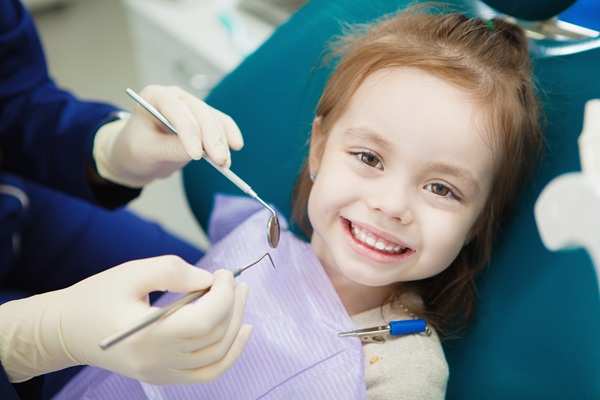FAQs About Tooth Extractions in Pediatric Dentistry

Baby tooth extraction is a common pediatric dentistry procedure. It involves the surgical removal of teeth. Your child’s dentist will only recommend tooth removal when it is necessary. But it is vital to learn as much as possible about this pediatric dentistry procedure. Keep reading to learn more about what the process involves and how to care for your child after an extraction.
Pediatric dentistry
There are particular cases when a child needs to have a tooth pulled. This is often necessary if the tooth is badly decayed or damaged beyond repair by disease or dental trauma. It may also be ideal when baby teeth begin to crowd adult teeth coming in. But regardless of the reason, it is vital to follow the dentist’s instructions after an extraction. They are meant to aid a child to heal properly and avoid complications like an infection.
Tooth extraction process
A pediatric dentist will first take the appropriate X-rays. This will help to assess the tooth’s roots and bone condition, and to reveal other vital information. Most times, a simple extraction only requires a local anesthetic. A device, called an elevator, is often used to loosen the tooth before removing it with dental forceps. A surgical extraction, which is a more complicated removal, often requires local anesthesia and nitrous oxide. This procedure usually involves removing some gum tissue near the tooth so that it can be removed.
Recovery from a tooth extraction
Pediatric dentists always do everything they can to ensure the procedure is as comfortable as possible. A patient will most likely still experience some minor swelling or discomfort after an extraction. But there are several things people can do to minimize pain, swelling, and other symptoms. After the procedure, patients should only eat soft foods for a while.
Parents should avoid giving their children hot foods for a few hours until the numbness wears off. The area of extraction is usually not brushed for several days following the procedure. Instead, patients may be instructed to rinse with warm salt water for several days. This will not only help with healing but to also keep the area clean.
Children should not suck from a straw or spit vigorously for about a week after extraction. These actions may cause the healing area to bleed. When it comes to pain management and swelling, ice packs are often beneficial. A dentist may also recommend medications that can help manage pain and speed up the recovery process.
Tooth removal and your pediatric dentist
Pediatric dentists often care for children’s teeth, gums, and mouth. They are highly trained and experienced and can help address many oral health problems. Having a professional in charge of the tooth extraction procedure often gives many parents peace of mind. It is crucial to closely follow the dentist’s instructions before and after a tooth is pulled. But you should call the dentist right away if you notice your kid is having difficulty recovering. To find out more about tooth extractions in pediatric dentistry, talk to your pediatric dentist today.
Are you considering pediatric dentistry in the Dumont area? Get more information at https://novapedsdentistry.com.
Check out what others are saying about our dental services on Yelp: Pediatric Dentist in Dumont, NJ.
Recent Posts
Infants can benefit from seeing a pediatric dentist when primary teeth begin to erupt. Primary teeth are placeholders for permanent teeth and should receive the same attention, including appropriate home care.Primary teeth are crucial to a baby's health and development. Therefore, dentists encourage parents to begin an infant's oral hygiene routine as soon as possible…
Children, who are particularly prone to tooth decay, should brush their teeth twice a day and make regular visits to a pediatric dentist. These healthy habits can help reduce the risks of developing cavities and serious dental issues. Using fluoride toothpaste is also an important step in childhood dental care that can add an extra…
A pediatric root canal is sometimes necessary to prevent the loss of a decayed or damaged baby tooth. Although the goal is to prevent dental cavities and tooth infections, they can still develop, especially in young children (who, on average, are more prone to cavities than teens and adults). It is essential to quickly detect…
A pediatric dentist can help prevent tooth decay. Early dental checkups will enable the dentist to provide treatments that can make this possible. Your dentist can guide you and your child on how to keep teeth and gums healthy. Here are some effective tips on how to prevent childhood tooth decay straight from a pediatric…


